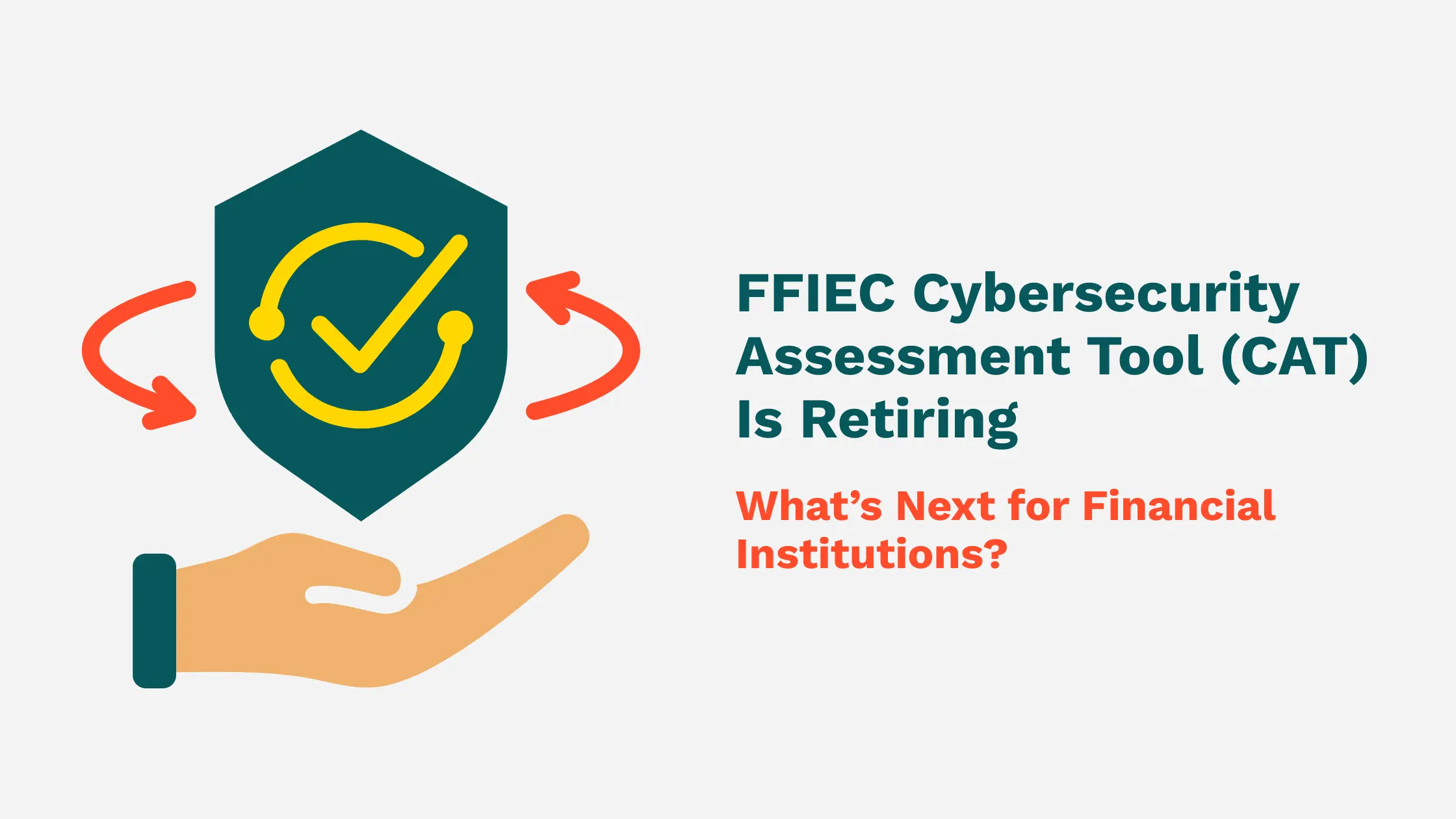
The FFIEC CAT tool (Federal Financial Institutions Examination Council Cybersecurity Assessment Tool) will soon be retired.
Since its introduction, the FFIEC Cybersecurity Assessment Tool has been widely used by banks and financial service providers to measure their cybersecurity maturity.
With its sunset approaching, institutions must now shift toward a dynamic, risk-based compliance approach. With its FFIEC CAT sunset approaching, institutions must now shift toward a dynamic, risk-based compliance approach.
The cybersecurity environment has evolved dramatically since the FFIEC CAT tool was launched.
The tool's static, checklist-driven model no longer reflects the threat-adaptive nature of modern cyber risks. FFIEC now encourages institutions to:
Adopt frameworks such as:
This approach ensures organizations find the right replacement for FFIEC CAT while strengthening defenses against evolving threats.
.webp)
Establish or mature your risk management programs with clear:
Move beyond checklists with:
ioSENTRIX provides the technical expertise and strategic guidance necessary to help you go beyond the FFIEC CAT retirement and strengthen cybersecurity programs.
While the cybersecurity self-assessment tool may be going away, cybersecurity risks are not. Financial institutions need to evolve their compliance programs now to stay ahead.
ioSENTRIX is your trusted partner for navigating this transition securely and efficiently.
Contact us today to learn how we can support your transition.